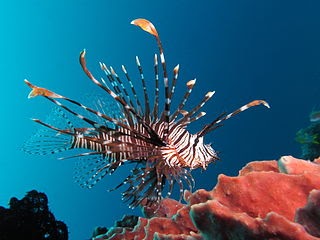 The coast of Florida is a treat for any snorkeler, with coral reefs teeming with fish.
The coast of Florida is a treat for any snorkeler, with coral reefs teeming with fish.
However, there is also an unwelcome guest. The waters are being threatened by the invasion of carnivorous lionfish. The state of Florida is now declaring war on these predators - a native of the warm oceanic waters of the Indo-Pacific regions.
How did the lionfish get to the Florida waters?
Invasive Species
Lionfish were first spotted in Florida's beaches in 1985, and thought to be an abandoned aquarium pet. Without any natural predators to regulate their population, these non-indigenous fishes present a danger to the ecosystem. Scientists refer to these non-native animals as invasive species.
With their toxin-tipped fins, the lionfish have spread from the northern Gulf of Mexico, mid and south Atlantic, to the Caribbean and Bahamas. They pretty much eat any fish they can swallow, destroying the native reef fish population in many areas.
Volunteer divers and resource managers have managed to knock down their numbers on some natural and artificial reefs, but the hardy invaders bounce right back. Female lionfish can spawn every two to four days, spewing as many as 2 million eggs per year into marine ecosystems.
Eradication seems an impossible option. Scientists are instead focusing their efforts to control and reduce their population in concentrated areas, hoping to reduce their numbers and curb their impact on native fish species and coral reefs.
About Lionfish
Pretty much everything about the venomous lionfish - its red-and-white zebra stripes, long, showy pectoral fins, and generally cantankerous demeanor says "Don't touch!"
An array of 18 needle-like dorsal fins, used as a means of self-defense, can deliver venom to a victim. The lionfish is famous for its camouflage and lightning-fast reflexes to capture prey, mainly fish and shrimp. Their sting can be extremely painful to humans and can cause nausea and breathing difficulties, but is rarely fatal.
These fishes have become common in warm ocean habitats worldwide. They are normally popular as aquarium fishes for their brilliant colors and are also popular in some parts of the world as a prized delicacy.
Courtesy: BBC, National Geographic








